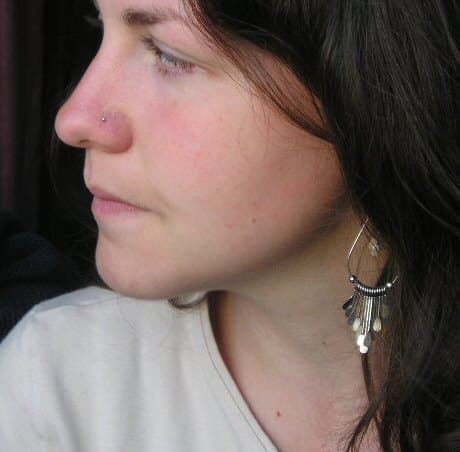Advertisement
A Former Charter School Teacher Wades Into The Debate

COMMENTARY
I support public schools and attended them from kindergarten through high school. Yet after teaching at a charter school in Dorchester for five years, I wish I'd had the opportunity to attend one. I wish more students did.
Next week, Massachusetts will vote on an initiative that would increase the number of charter schools in the state by up to 12 per year. Roughly 34,000 Massachusetts students remain on charter school waiting lists, and even if the expansion bill passes, most of those students will keep waiting.
Charter schools must meet state curriculum standards, but teachers have freedom to figure out how to do that, which means customized content and individualized attention.
Charter schools are free, and families can’t buy their way into one. Charter schools use lotteries to choose students, which may not be the best system, but it’s unbiased. Lottery night at our school was the most devastating event of the year, as students awaited news of their educational fates, which depended solely on their number being called, or not. Perhaps the worst thing about charter schools is that they can’t serve the number of students who want to enroll.
Yes, there are unfortunate examples of financial fraud and questionable policies regarding enrollment and student discipline at some charters. But the most effective charter schools are often members of consortia that share best practices with other schools, which means that a charter school’s success can pave the way to successes at other schools and thus strengthen our educational system.
By the time students made their way to me for 12th grade English, they were poised, respectful and responsible (with a few exceptions here and there, of course). What made the school so effective? And what about its effectiveness speaks to the larger opportunities offered by charter schools?
For starters, our charter school had an extended school day, week and year. (Even though it elicits groans from both students and teachers, less time off in the summer results in fewer skills lost between school years.) Teachers routinely stay until 6 or 7 p.m., monitoring homework club and other after-school tutoring programs, or overseeing an extra-curricular group. Struggling students had the option of attending Saturday school. This was good for the students, and it was good for working parents.
Charter schools must meet state curriculum standards, but teachers have freedom to figure out how to do that, which means customized content and individualized attention. The principal at my charter school knew every parent’s name and every student’s SAT score. I regularly arrived early to meet with other teachers and administrators to set up academic and emotional support systems for students of concern. If a student showed signs of depression, or if a student’s parent lost a job or got sick, we joined forces to help. This wasn’t about funding, this was about giving students every academic, social and emotional advantage possible, and charter schools are often better positioned to do this.
We brainstormed different ways for students to access material depending on their needs. We focused specifically on students with Individualized Education Programs (IEPs) because of learning disabilities, diagnoses such as Asperger’s or ADHD, or cognitive, social or emotional impairments. Teachers met weekly with liaisons specifically hired to recommend modifications on assignments and tests, as well as strategies for teaching students on IEPs. Special needs students thrived, graduated with their classmates and gained admission into college.
Academics was a focus, but so were professionalism and good citizenship. We accompanied students as young as middle school on college visits to give them a sense of what’s possible. Juniors participated in a two-week internship at an organization that reflected their interests and goals. Some of those internships led to college majors, jobs and, most important, real-world confidence.
It's not easy, but socioeconomic disadvantages can be overcome, and such students can become upwardly mobile.
During election years, teachers helped eligible students register to vote and accompanied them to polling stations. In order to graduate, students performed 80 hours of community service. I once chaperoned a trip to a homeless shelter, where residents plant, harvest and cook their own food. Students spent the day pulling weeds, gathering vegetables and tilling land. They hauled wheelbarrows of compost in the hot sun, worked hard and enjoyed it. Those are the kind of people I want in the world. The best charter school initiatives aren’t just about getting good grades, they’re about community, mentorship and citizenship.
Many students in the school where I taught were the first in their family to graduate from high school or to attend college. It's not easy, but socioeconomic disadvantages can be overcome, and such students can become upwardly mobile.
As Carl Sagan said, everything is an experiment, including -- perhaps especially -- education. We can all agree that public education could work better. Charter schools are an experiment that have yielded unfortunate results in a few cases, but exceptional and life-changing results in many others. I vote for replicating and improving such a promising experiment until the opportunities charter schools provide are available to all who want or need them.
